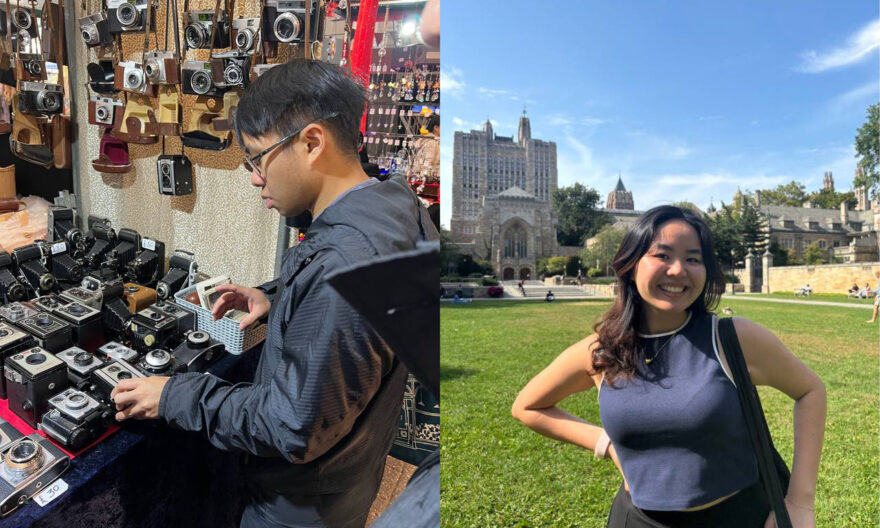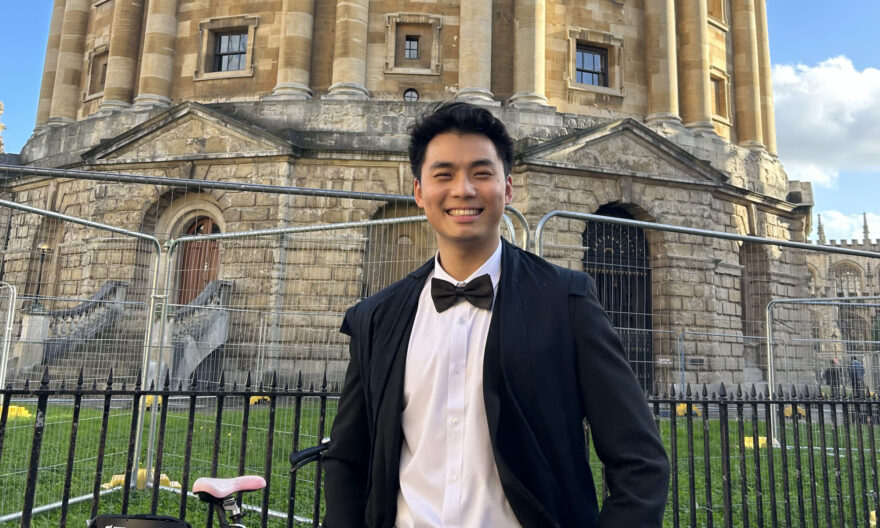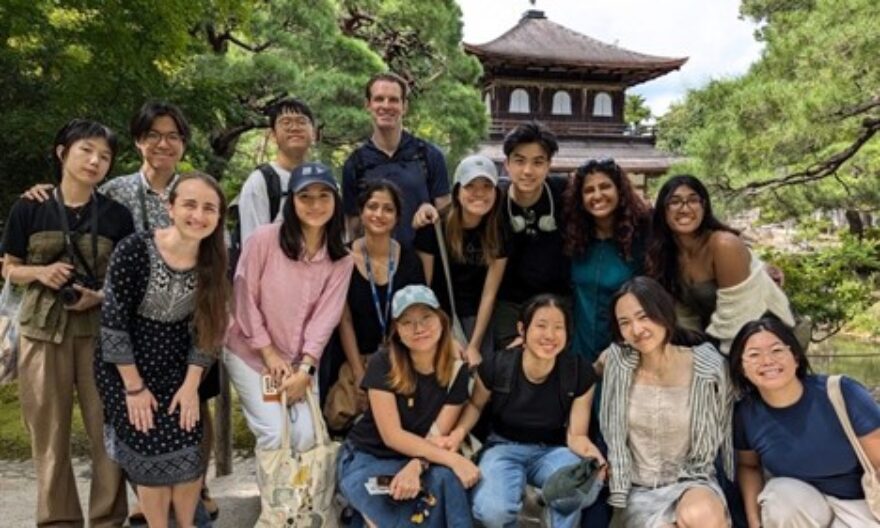From Thailand to Brunei: Reflections from Yale-NUS College’s Learning Across Boundaries (LABs) programme 2023
Learning trips provided unique immersive experiences beyond the classroom
Experiential learning is an integral part of the student experience at Yale-NUS College and one signature programme is the Learning Across Boundaries (LAB) programme, which gives students, faculty and now alumni the opportunity to learn outside the classroom setting.
This semester, the Centre for International and Professional Experience (CIPE) offered four LABs during Recess Week from 19 to 25 February. This is an unusual number for the term time LABs or Spring LABs, said CIPE Director Nilanjana Pal as previous iterations of Spring LABs had been capped at two.
Three of the Spring LABs – ‘Walking with Woolf’, ‘From Land to Life’, and ‘A Tale of Two Shipwrecks’ – were held abroad in England, Thailand and Brunei respectively, with a local LAB, ‘From Farm to Fork’ held in Singapore.
Interest in Spring LABs has also been on the rise; “The Thailand LAB is one of the largest ever in terms of student numbers. I can’t recall another LAB that had 25 students!” Director Pal observed, pointing out that LABs now also offered an opportunity for alumni to participate.
‘A Tale of Two Shipwrecks’ LAB in Brunei focused on shipwrecks and how they shaped our understandings of the past, by comparing two shipwrecks – the Belitung wreck, dated 826-827, which was excavated by a commercial firm working in the Java Sea, and the Brunei Shipwreck, dated 1500, which was excavated scientifically by a joint Brunei and French team. Students visited both shipwrecks in Singapore and Brunei, guided by Valerie Hansen, Stanley Woodward Professor of History at Yale University.
Participants were also introduced to Dr Michael Flecker, a leading maritime archaeologist in Southeast Asia, who was involved in the excavation of the Belitung Wreck, in Singapore, before visiting Brunei to observe the Brunei shipwreck.
Dylan Lee (Class of 2025), who went on the LAB shared that the LAB offered a unique opportunity for him to learn more about the artefacts recovered from shipwrecks and the ethics behind their excavation.
Another participant, Sophia Chok (Class of 2025), shared, “I honestly knew nothing [about shipwrecks] prior to the LAB, but I’ve learned so much from the experiences in museums, insightful conversations from my peers, and being immersed in such a holistic academic experience”.
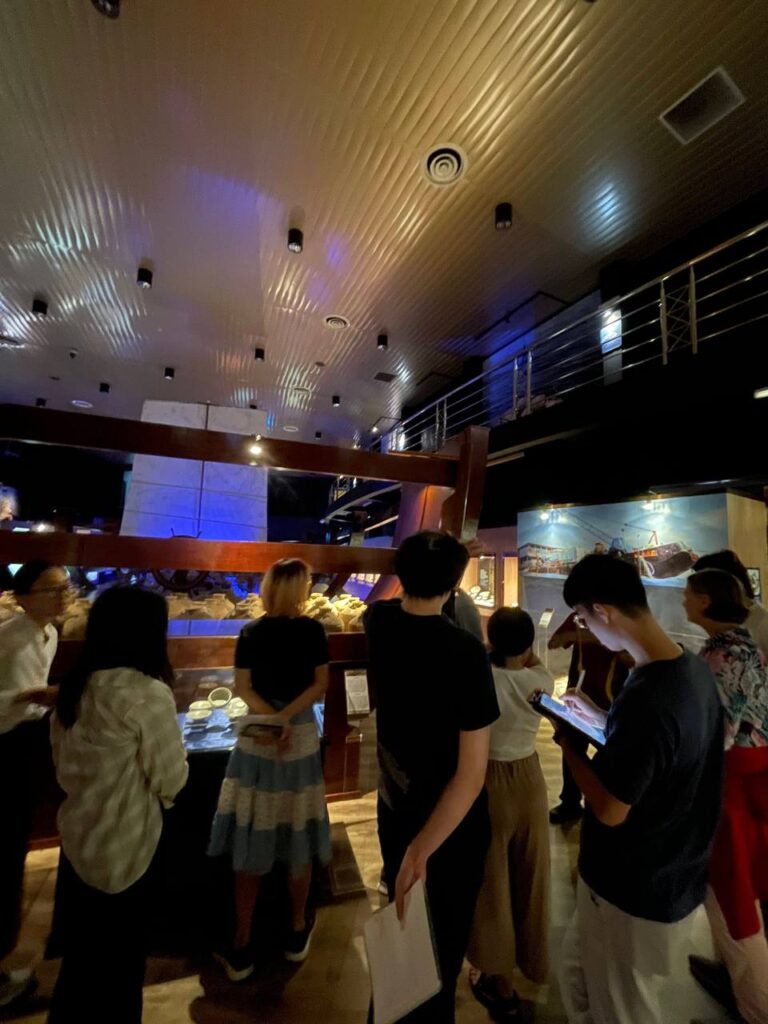 LAB participants at the Brunei Maritime Museum, studying the Brunei Shipwreck. Image by Jody Lim.
LAB participants at the Brunei Maritime Museum, studying the Brunei Shipwreck. Image by Jody Lim.
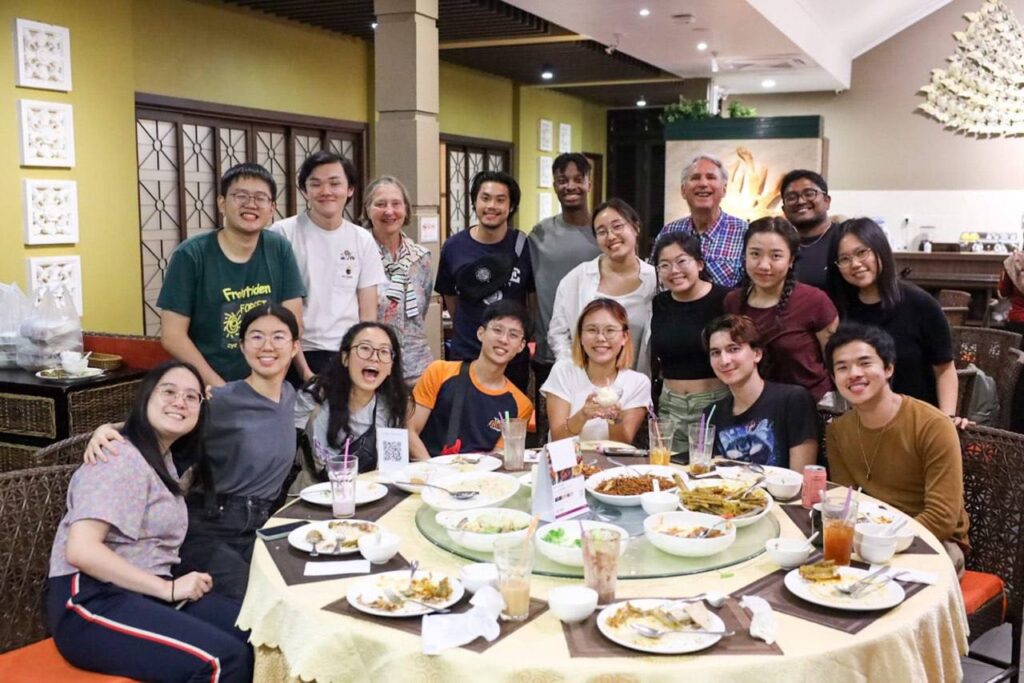 Participants of the ‘A Tale of Two Shipwrecks’ LAB in Brunei. Image by Jody Lim.
Participants of the ‘A Tale of Two Shipwrecks’ LAB in Brunei. Image by Jody Lim.
The other ASEAN LAB, ‘From Land to Life’ invited students to live with and learn from the Par K’Yaw community of Northern Thailand, an ethnic hill tribe group whose indigenous ways of living are rooted in a deep relationship with land, ecology and culture.
Students were hosted by two Par K’Yaw communities in the villages of Huay I Khang and Nong Tao. This LAB was guided by Yale-NUS Associate Professor of Social Sciences (Environmental Studies) Marvin Montefrio and Ethel Pang (Class of 2022), an alumna whose experience with the Par K’Yaw community inspired her to collaborate with CIPE on this LAB.
Ethel shared, “I was in the unique and privileged position of being able to serve two communities that I care about: the host families here in Thailand, and the Yale-NUS community. It was a coming together of two worlds for me, and I deeply appreciate carrying the trust of the host community to facilitate a meaningful experience for the students. I also feel so proud of how the student participants conducted themselves wonderfully with such curiosity and openness in learning from our host communities.”.
Fellow alumna Valeria Gonzalez Duarte (Class of 2021) signed up as a participant as she felt that “the choice of topic matches my interests perfectly, as I believe we need a tight relationship with nature in order to address the climate crisis”.
LAB participants were exposed to sustainable coffee agriculture under the guidance of their host, coffee farmer P’ Kwiv in Nong Tao village, learning about coffee production in the process. For Nikita Taratorin (Class of 2023), a coffee enthusiast, the opportunity allowed him to “listen to our roots” away from the bustling modernity of college life.
Meanwhile at Huay I Khang village, students were hosted by Nor Yatee and her family, assisting them in daily tasks, including foraging in the forest, dyeing and weaving textiles, and cooking indigenous food. Hoi Yuet Woo (Class of 2025) was enticed by the prospect of learning to farm in a non-urban setting, and was deeply impacted by the indigenous approaches to living she encountered, “Nature no longer seemed like an abstract space that is only known to me in theory. I see it in all parts of the Par K’Yaw way of living – in the food that they eat, in their rituals, and in their immense respect for the forests.”
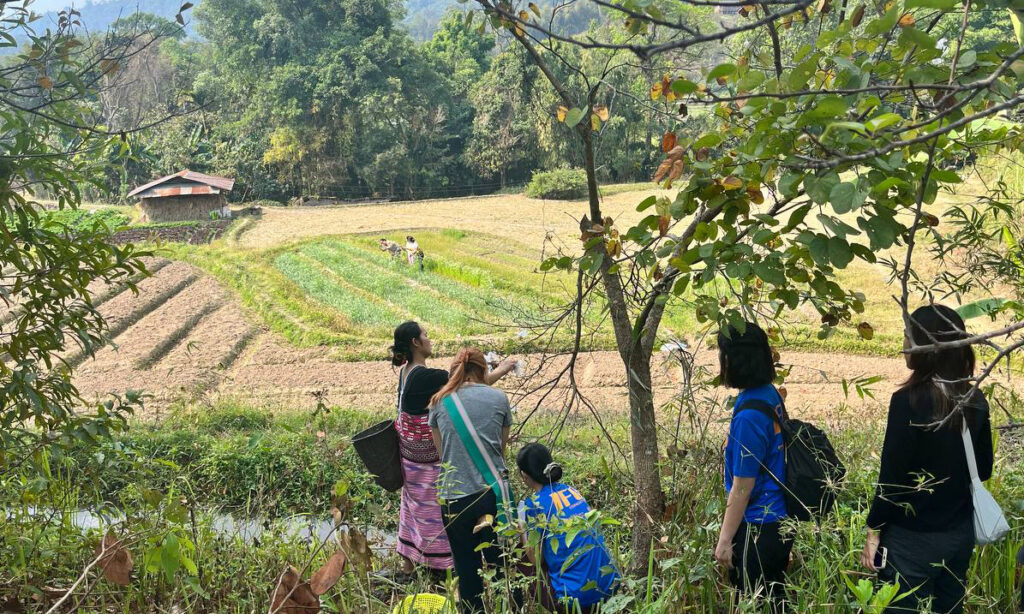 Students foraging with their host Nor Yatee outside Huay I Khang. Image by Nilanjana Pal.
Students foraging with their host Nor Yatee outside Huay I Khang. Image by Nilanjana Pal.
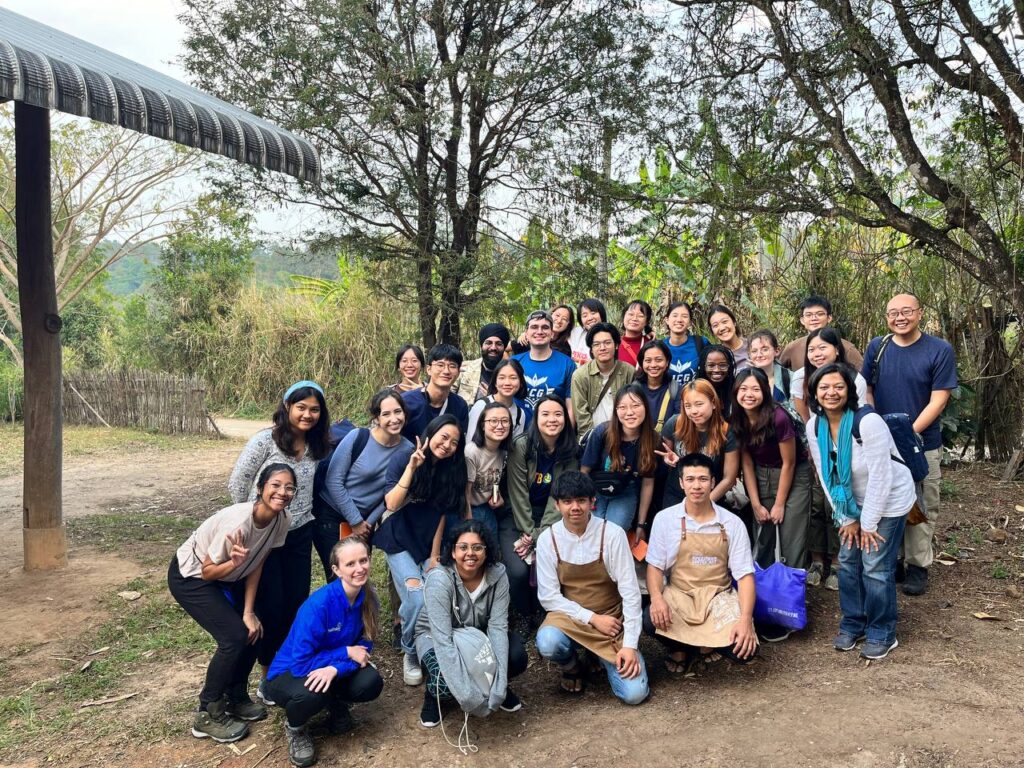 Participants of the ‘From Land to Life’ LAB in Thailand. Image by Nilanjana Pal.
Participants of the ‘From Land to Life’ LAB in Thailand. Image by Nilanjana Pal.
Regardless of where their LABs took them, students returned enriched by what they had learned, ready to implement it in their academic careers and beyond.

